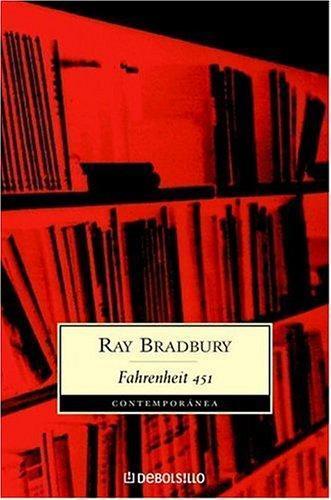Sharyl reviewed Fahrenheit 451 by Ray Bradbury
Review of 'Fahrenheit 451' on 'Goodreads'
5 stars
It's been years since I read this, years before being online and years before newspapers started folding. It's a different world now, and this short novel, written in the early 1950s, is eerily prescient. Ray Bradbury did not predict the internet, exactly, but something very much like it; many people are addicted to sitting in their "parlors," places in their houses in which meaningless conversation is piped, soap opera like, to keep people senselessly occupied. There are no educational programs, and books are burned. Suspect someone of hoarding books? Send an alarm! The firemen will come and burn down the guilty person's house and arrest him/her.
Books cause thinking and different opinions. Some books make people uncomfortable. Many books would belie the history that's been rewritten for the masses. Therefore, books are poisonous--away with them all!
This story focuses on one fireman named Guy Montag, and his yearning for life and curiosity about what came before and what else there could be--which leads him to books.
Meanwhile, there is a war going on--somewhere. No one knows anything about it, or anything about other countries, or the plight of other people. People aren't even raising their own children. There is little empathy to be found, but certainly enough violence--children are killing children. Among these young people is a girl named Clarisse, who is labeled as an outcast for asking the wrong sorts of questions and being so--social. Guy never hears exactly what becomes of her.
Guy Montag's main adversary is Captain Beatty, a fireman who has obviously read many books. He's an interesting character, one who must be conflicted, and yet he's more adamant about destroying books than anyone around him. For most, it's a job. For Beatty, it's a philosophy and a mission. Meanwhile, Montag's wife, Mildred, is a study in boredom, depression, and emptiness.
Bradbury painted a scary mirror all those years ago--in just about 172 pages. Incredible.

